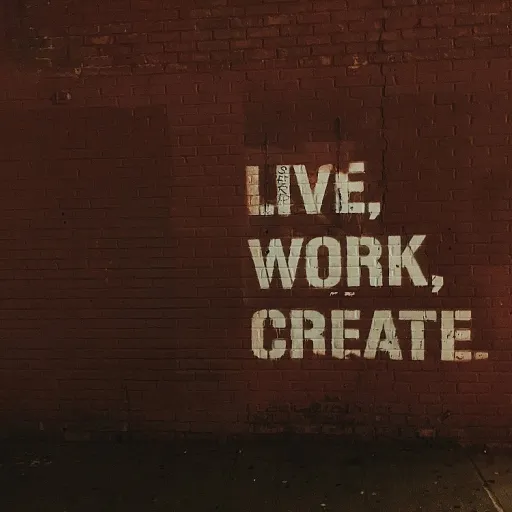
Defining the screening interview
What happens during the first step of the hiring process?
When a company starts looking for the best candidates to fill a job position, the screening interview is often the first real conversation between the candidate and the hiring manager. This stage is sometimes called pre screening or interview screening. It is designed to quickly assess if a candidate’s skills, experience, and personality traits match the requirements of the role and the company culture.
Screening interviews are not just about ticking boxes. They help companies streamline hiring by filtering out unqualified candidates early, saving time for both sides. For candidates, this is a chance to show what makes them a good fit, even if they have a skills gap. The questions asked during this process often focus on your background, your understanding of the job, and your motivation to join the company.
- Format: Screening interviews can be conducted over the phone, as a video screening, or sometimes through online questionnaires. Each format has its own expectations and challenges.
- Purpose: The main goal is to check if you meet the basic requirements for the position and if your experience and personality align with the company’s values and management style.
- Topics: Expect questions about your previous experience, your skills, your interest in the role, and sometimes your salary range expectations.
Understanding what screening interviews are and how they fit into the overall interview process is crucial, especially if you are concerned about a skills gap. If you want to learn more about how to enhance your technical competence and bridge the skills gap, you can read this in-depth guide on enhancing technical competence.
Why screening interviews matter for those with a skills gap
Why the First Interview Matters for Candidates with a Skills Gap
The screening interview is often the first real conversation between a candidate and a company. For those who feel they have a skills gap, this step can feel intimidating. However, it is also a unique opportunity. The screening process is designed to identify qualified candidates who may not have every technical requirement, but who show potential through experience, personality traits, and a willingness to learn.
Companies use screening interviews to streamline hiring and focus on the best candidates for the job. This means that hiring managers are not just looking for a perfect match on paper. They want to see if you are a good fit for the company culture, if your management style aligns with the team, and if you have transferable skills that could benefit the role. The questions asked during this stage often go beyond technical skills and touch on your motivation, adaptability, and how you approach learning new things.
- Screening interviews help companies quickly assess if a candidate’s experience and personality could fit the position, even if some skills are missing.
- They allow candidates to explain gaps in their experience and highlight what makes them unique.
- Pre-screening and video screening interviews save time for both the company and the candidate, making the hiring process more efficient.
For candidates, understanding what screening interviews are really about can turn a potential weakness into a strength. By preparing to discuss your skills gap honestly and focusing on your ability to learn and adapt, you can show hiring managers that you are more than just a list of qualifications. This is your chance to demonstrate cultural fit and share examples of how you have overcome challenges in the past.
If you want to learn more about how companies are addressing the skills gap with broader talent strategies, check out this resource on comprehensive talent strategies for bridging the skills gap.
Common formats of screening interviews
Exploring the Main Types of Screening Interviews
Screening interviews are a crucial part of the hiring process, especially for candidates who may not have every skill listed in a job description. Companies use different formats to quickly identify qualified candidates and streamline hiring. Understanding what to expect can help you prepare and present your skills and experience effectively.- Phone Screening: This is often the first step. A recruiter or hiring manager calls to discuss your background, experience, and motivation for the role. The goal is to confirm basic qualifications and assess your communication skills. Expect questions about your experience, why you’re interested in the position, and your understanding of the company.
- Video Screening: Increasingly common, especially for remote or global roles. Video screening interviews can be live or pre-recorded. In a pre-screening video, you might answer a set of interview questions within a time limit. This format helps companies evaluate your presentation, technical skills, and personality traits.
- Online Assessments: Some companies include skills tests or personality assessments as part of the interview screening process. These can measure technical abilities or cultural fit, and sometimes include scenario-based questions relevant to the job or company culture.
- In-Person Screening: Less common as a first step, but some organizations prefer a short face-to-face meeting to gauge fit and clarify expectations about the role, salary range, and management style.
Key questions asked during screening interviews
What to Expect: Typical Screening Interview Questions
Screening interviews are designed to quickly identify qualified candidates who could be a good fit for the job and company culture. The questions asked during this stage are usually straightforward, but they play a crucial role in the hiring process. Understanding what screening interview questions focus on can help candidates prepare and present their skills and experience more effectively.- Background and Experience: Interviewers often begin by asking about your previous roles, responsibilities, and relevant experience. This helps them assess if your background aligns with the position requirements.
- Motivation and Interest: Expect questions like “Why are you interested in this role?” or “What attracted you to our company?” These questions gauge your enthusiasm and whether you’ve researched the company.
- Skills and Qualifications: Screening interviews frequently include questions about your technical and transferable skills. You may be asked to describe how your abilities match the job description or to provide examples of how you’ve used specific skills in past roles.
- Availability and Logistics: Practical questions about your availability, preferred start date, and salary range are common. These help streamline hiring by ensuring there’s alignment on basic requirements early in the process.
- Cultural and Personality Fit: Some interviewers will ask about your preferred management style, how you handle teamwork, or what type of company culture you thrive in. These questions help determine if your personality traits and work style fit the organization.
How Screening Interviews Shape the Hiring Process
The pre screening or video screening interview is not just about ticking boxes. It’s a way for hiring managers to get a first impression of your communication skills, professionalism, and potential fit for the role. The process often includes:- Assessing if your experience and skills meet the minimum requirements for the position
- Identifying any gaps that could be addressed with training or support
- Evaluating your understanding of the job and the company’s values
How to highlight transferable skills
Showcasing Your Transferable Skills Effectively
When you’re facing a screening interview and know there’s a skills gap between your experience and the job requirements, it’s crucial to focus on transferable skills. These are abilities and knowledge you’ve gained in previous roles or life experiences that can be valuable in the new position, even if your background isn’t a perfect match.
- Understand what the company values: Before the interview, research the company culture and the role’s requirements. Look for clues in the job description about the skills and personality traits the hiring manager is seeking. This helps you tailor your answers to highlight relevant strengths.
- Connect your experience to the job: During the interview process, use specific examples from your past positions to show how your skills apply to the new role. For example, if you managed a team in a different industry, explain how your management style and problem-solving abilities can benefit the company.
- Emphasize soft skills: Screening interviews often focus on communication, adaptability, and cultural fit. If you lack technical expertise, stress your willingness to learn and your proven ability to adapt to new environments. Mention times when you quickly picked up new processes or technologies.
- Prepare for common interview questions: Expect questions about your experience, why you’re interested in the position, and how you handle challenges. Use these as opportunities to demonstrate your fit for the company and the role, even if your background isn’t traditional.
- Be honest but confident: If asked directly about your skills gap, acknowledge it without apology. Focus on what you bring to the table and how your unique background can offer fresh perspectives during the hiring process.
Remember, screening interviews are designed to identify qualified candidates who can contribute to the team, not just those who tick every box. By preparing thoughtful examples and aligning your experience with the company’s needs, you increase your chances of moving forward in the hiring process.
Mistakes to avoid in screening interviews
Common pitfalls that can hurt your screening interview performance
Screening interviews are often the first real interaction candidates have with a company during the hiring process. Making a strong impression is essential, especially if you are trying to bridge a skills gap. Here are some frequent mistakes to watch out for when participating in screening interviews:- Not preparing for common interview questions: Many candidates underestimate the importance of pre-screening or video screening interviews. Failing to prepare for typical questions about your experience, skills, and fit for the role can make you seem unqualified or uninterested.
- Overlooking transferable skills: If you have a skills gap, it’s crucial to highlight what you can bring to the position from previous roles. Avoid focusing only on what you lack. Instead, connect your past experience and personality traits to the job requirements and company culture.
- Giving generic answers: Hiring managers and recruiters use screening interviews to assess not just your skills, but also your fit with the team and management style. Vague responses can make it hard for them to see you as one of the best candidates for the job.
- Ignoring company research: Not knowing basic facts about the company, its values, or the position can signal a lack of interest. Take time to understand what the company does and how your skills align with its needs.
- Talking only about technical skills: While technical skills are important, companies also look for cultural fit and soft skills. Balance your answers by sharing examples that show your adaptability, communication, and willingness to learn.
- Failing to ask questions: At the end of the interview, you’ll often have the chance to ask questions. Not taking this opportunity can make you seem passive. Prepare thoughtful questions about the role, team, or company culture to show genuine interest.
- Discussing salary too early: Bringing up the salary range before the interviewer does can be seen as premature. Wait until the hiring manager introduces the topic or until later stages in the interview process.
- Poor time management: Rambling or giving overly long answers can disrupt the flow of the interview. Practice concise responses that address the question and highlight your fit for the position.












